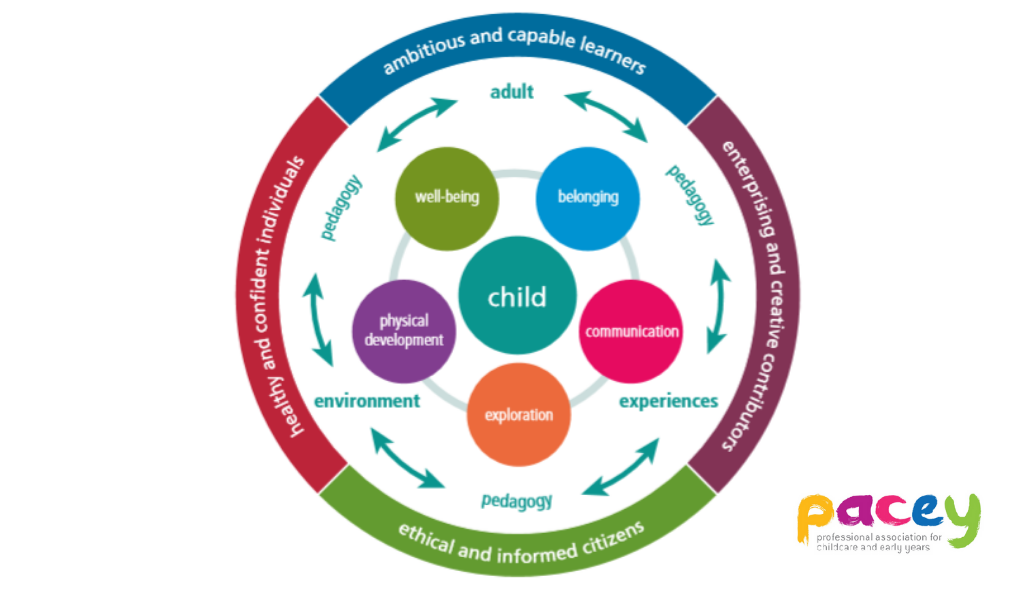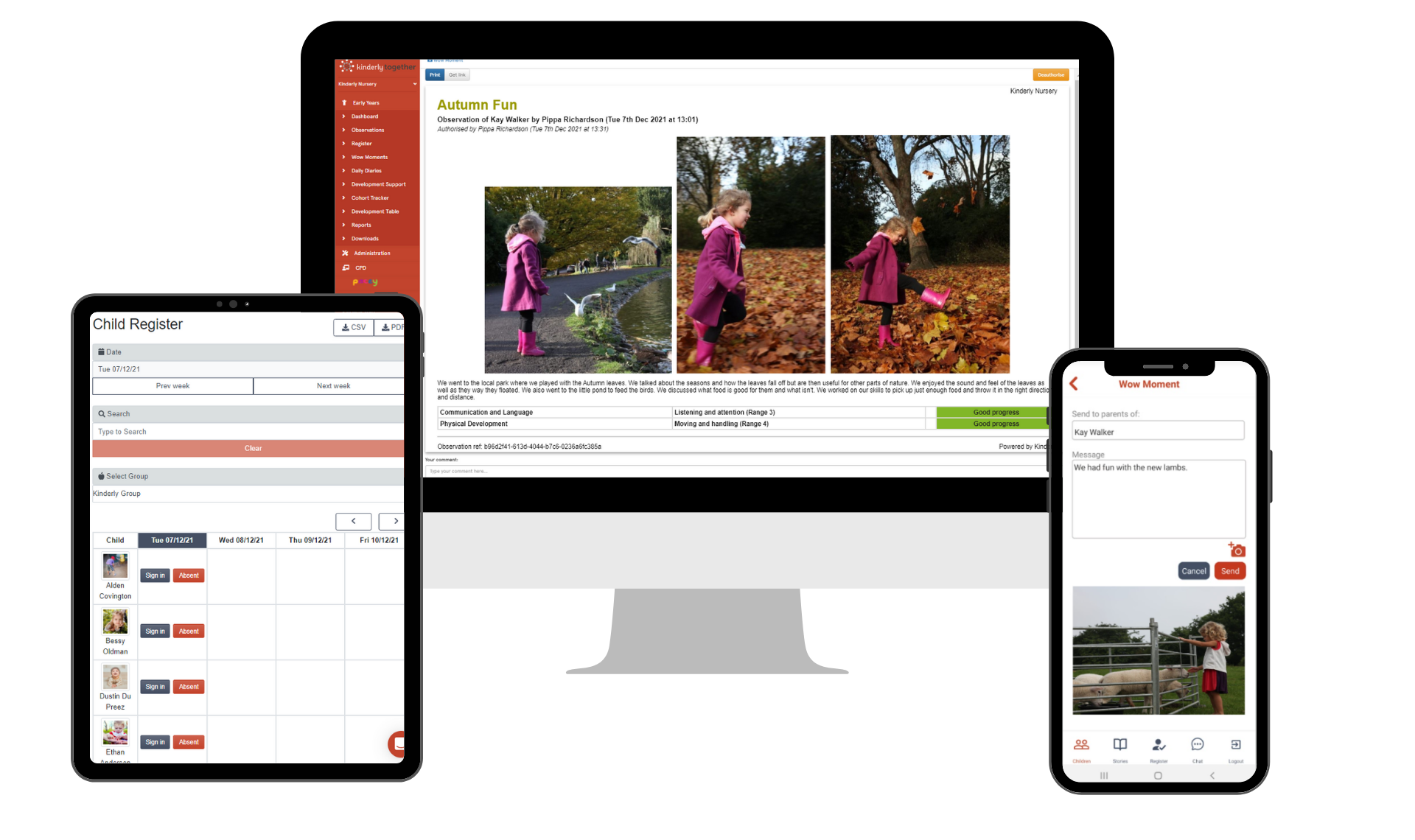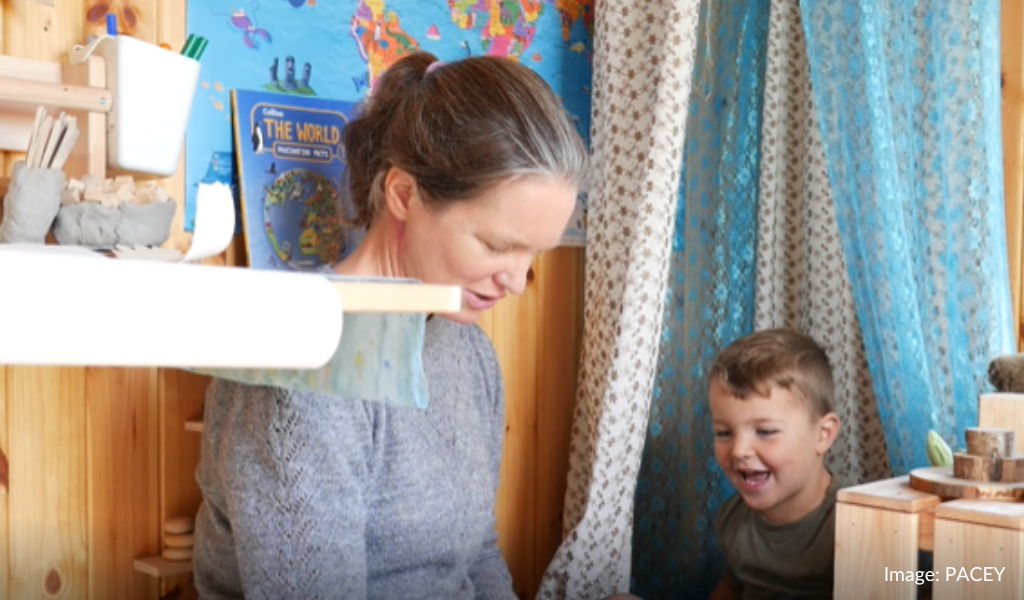Updated 8th November 2022
It is a very exciting time in the history of education in Wales given that changes in relation to the new Curriculum for Wales which was implemented this September.
Claire Protheroe, National Manager for Wales for PACEY Cymru talks you through the background and context of the changes to support you with growing knowledge, understanding and confidence about what the changes mean to you as a childcare provider in Wales.
The new Curriculum for Wales has four purposes which are the shared vision and aspiration for every child and young person as;
PACEY Cymru are working closely with the Welsh Government on the development, implementation and roll out of the new curriculum. Along with other professionals, organisations and practitioners, we have supported the co-production of the ‘Curriculum for funded non-maintained nursery settings‘. This will be key for settings to embed the new curriculum in the services they deliver to ensure that children in their earliest years have the best possible start to their ‘learning journey’ and provide firm foundations to build on.

For those providing funded education in non-maintained settings, and those potentially looking to do so in the future, this new curriculum will be key to delivery of learning.
For those registered childcare settings who have been working to the Foundation Phase principles, the new curriculum principles will be embedded within future regulatory requirements.

The new curriculum for Wales looks to support a child-centred pedagogy (the method or practice of teaching) which is responsive, dynamic and embedded in strong relationships. Although the principles of effective pedagogy are embedded throughout the curriculum, it is particularly important to ensure that the learning environment within a setting provides consistent opportunities for:
The key principles essential for holistic and meaningful learning for all children, start with skilful, observant and interested adults who provide authentic and engaging experiences in effective, exciting environments. The curriculum sees these as the ‘enablers’ and the following content from the non-maintained curriculum gives some further detail on these.
As early years practitioners, we recognise that our role is integral to the progress of all children and is particularly significant in this period of early learning. We should set the expectation for learning by creating emotionally safe environments that support children to begin to express and regulate their feelings and behaviours in positive ways. We should model a joyful approach to learning, and encourage and support children’s natural curiosity, making best use of the teachable moments that occur naturally as we observe or engage in their play.
The experiences we offer in the early years should be hands-on, purposeful and meaningful to the child. They should encourage children’s independence and offer risk, challenge and opportunities to experience success along their learning journey. They should be rooted in real-life, authentic contexts, to engage children in deep levels of involvement and long periods of uninterrupted active learning.

The environment we create in our setting, indoors and outdoors, should be central to children’s authentic experiences. For this reason, we should continually monitor and review the effectiveness of the environment and adapt accordingly. During the early years, exploration of the environment is a key driver for development. Through exploration of their environment, children begin to develop a sense of belonging and an appreciation of the world around them.
Central to the curriculum are five key developmental pathways that are fundamental to the learning and development of all young children. These developmental pathways are child-centred and are interdependent, having equal value in supporting overall development and progress. They focus on what is important for the child and link closely to the key principles of child development. They have been developed to ensure children can be supported to make progress at their own pace and in their preferred learning environment.
These are:
There is detailed guidance on each of the developmental pathways in the non-maintained curriculum alongside guidance in relation to other areas of practice including inclusion and transitions.
The non-maintained curriculum includes a series of reflective questions for you to consider in the context of your setting, which will help you to reflect on your current approach and also support you with the next steps to support children’s learning and development. You can think about how you record your responses to these questions as they would support you in evidencing to others how you are growing your knowledge and understanding of the new curriculum and undertaking reflective practice and self-assessment to improve the quality of services provided.
Top tip! Think about how you could share any evidence in relation to reflective practice with Care Inspectorate Wales or Estyn during inspections or as part of your Quality of Care review.

Our award-winning early years management software will help you link your practice to the new curriculum and access expert CPD webinars on the subject to support your practice.
Cwlwm have produced further information to support you on learning more on the Spotlight page on the PACEY website alongside links to wider training. Welsh Government has also prepared six professional learning modules to support practitioners in the implementation and roll out which align with the principles of the new curriculum which can also be found on the page.

PACEY Cymru recently launched their Inspiring Environments toolkit. Hannah Chivers, Senior Policy Manager for the Foundation Phase in Welsh Government, who joined the launch shared her thoughts, “The new curriculum for funded non-maintained nursery settings emphasises the importance of three key ‘enablers’ – adults, environments and experiences – working together to inspire and support children in their learning, in meaningful ways which are relevant to their interests”. The Inspiring Environments toolkit complements this approach and will be a great resource to support childminders in providing quality home-based learning environments for children.
From the 1st September 2022, the Foundation Phase will no longer exist. The new Curriculum for Wales encompasses this period of learning.
The new curriculum for Wales is a continuum of learning for children from 3-16 years of age. As it is constantly evolving there will no longer be phases or stages within the new curriculum, therefore the Foundation Phase itself will no longer exist. From September the term ‘Foundation Learning’ will be used to reflect the importance of this period of learning.
To reflect Foundation Learning as part of the new curriculum framework, the curriculum for funded non-maintained nursery settings has been developed through a collaborative approach. This included the involvement of practitioners from a range of settings, Early Years Advisory Teachers, umbrella organisations (including PACEY Cymru) and other key partners.
To reflect Foundation Learning as part of the new curriculum framework, the curriculum for funded non-maintained nursery settings has been developed through a collaborative approach which included the involvement of practitioners from a range of settings, Early Years Advisory Teachers, umbrella organisations (including PACEY Cymru) and other key partners. More information can be found on the Welsh government website.
Providers (including childminders) who are not funded for education should still be aware of the curriculum for funded non-maintained nursery settings and work to the principles of this though they do not have to deliver a curriculum if they are not funded for education.
The Kinderly Together software has been updated to include the new holistic approach as outlined in the new Curriculum for Wales. You can try the Kinderly Together for free for 30 days, select the new curriculum and evidence learning around this.
This is open to consultation at present and the documents can be found here. In the meantime settings are able to use this document to help inform their assessment/planning.
Inspections will be carried out in the same way they are currently but practitioners will need to show they are working to the new curriculum rather than Foundation Phase.